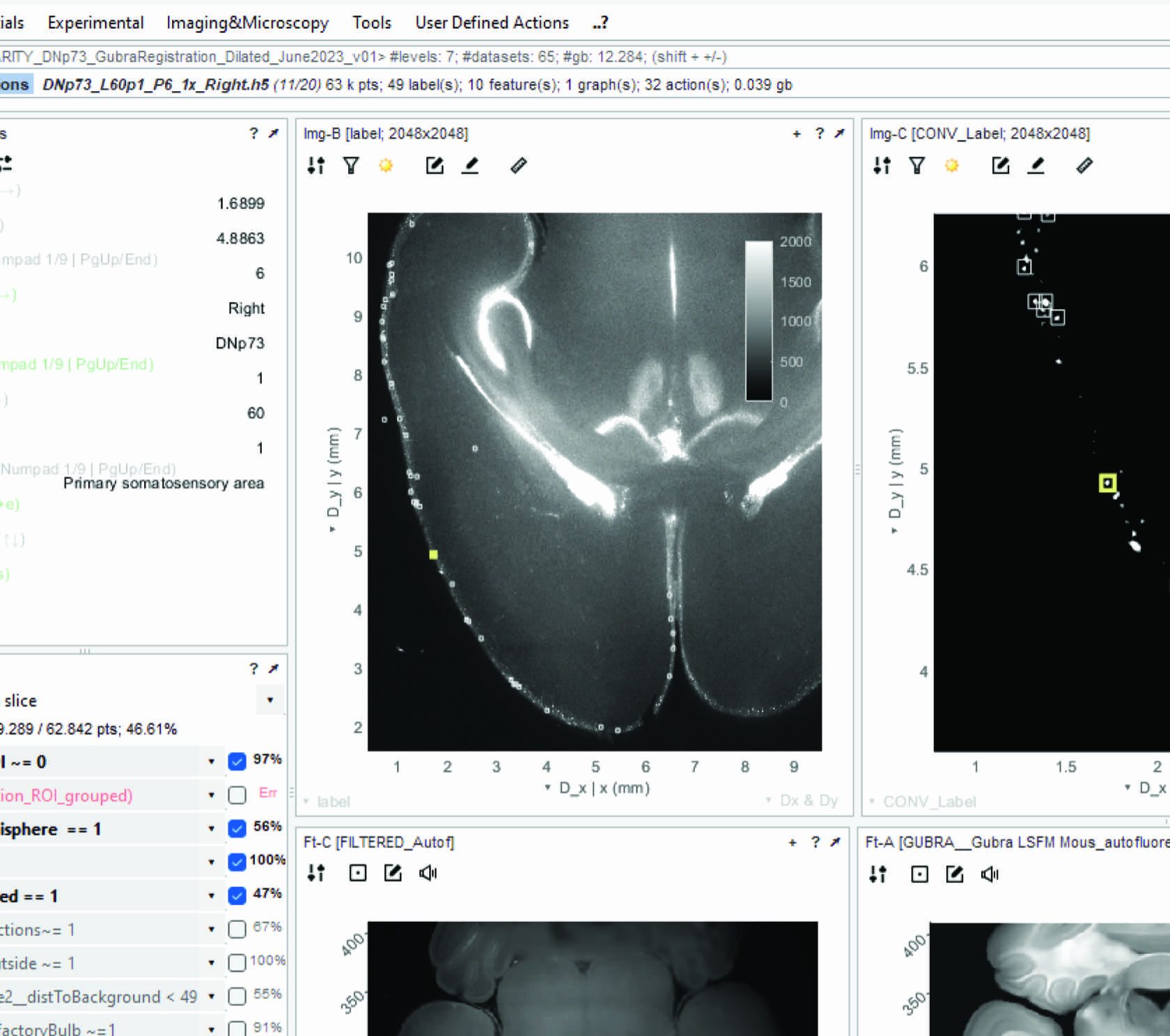HDDS Platform
High-dimensional data science platform
The project
Our work on the High-Dimensional Data Science (HDDS) platform began with the idea that many data analysis tasks in neuroscience and beyond can be broken down into a relatively small set of primitives. These primitives were designed to be combined in a Lego-like manner within a graphical user interface (GUI), supported by an underlying data-science programming platform.
This concept led to the development of DataDelv — a software package integrating both the GUI and the underlying data science programming platform. Originally developed at ETH Zurich and the University of Zurich by Sepp Kollmorgen, DataDelv was designed to allow seamless transitions between code-based and GUI-based workflows. This enables researchers to perform analyses without coding, while also integrating their own scripts and analysis pipelines with ease. Furthermore, DataDelv facilitates data sharing and workflow expansions.


Since becoming part of URPP AdaBD in 2021, Sepp Kollmorgen serves as the Platform Manager. Within AdaBD, we have significantly extended DataDelv based on insights from collaborations with multiple research groups inside and outside the URPP. These extensions introduced support for various new data types, including light sheet microscopy data (particularly produced by the mesoSPIM platform), and behavioural and neural data (i.e. unimodal and multimodal time series). Data formats such as video- and audio, as well as electrophysiology and 2-photon-data are supported. Additionally, data held in Datajoint or other table-based formats can be analysed. DataDelv is especially useful for large datasets (terabyte scale).
The dspace software, dspace documentation, associated services and materials are currently available in-house to researchers of the URPP AdaBD. We are approaching a final open-source release of dspace.
Services of the platform
- Onboarding of new users including discussion of needs with respect to data-analysis/data-science
- Instruction and training on how to use DataDelv to meet the user’s needs
- Download of DataDelv, DataDelv documentation, and associated materials, such as video tutorials
- Integration with other platforms of the URPP AdaBD, e.g. with the mesoSPIM platform
- Organization of user meetings and outreach activities
- Customization/extension of DataDelv to accomodate new types of data and analysis as well as to increase robustness and ease of use.
Staff
Sepp Kollmorgen, PhD
Publications
Kollmorgen S, Hahnloser RHR, Mante V (2020) Nearest neighbours reveal fast and slow components of motor learning. Nature 577(7791):526-530, doi.org/10.1038/s41586-019-1892-x
Schoenfeld G, Kollmorgen S, Lewis C, Bethge P, Reuss AM, Aguzzi A, Mante V, Helmchen F (2021) Dendritic integration of sensory and reward information facilitates learning. bioRxiv, doi.org/10.1101/2021.12.28.474360.
